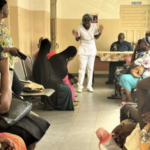Corporate support for the government’s Free Senior High School Policy (Free SHS) has played a very significant role in meeting the infrastructure needs of some deprived schools.
Notable among these interventions is the announcement by Tullow Oil Ghana in 2018, of $10-million to improve senior high school infrastructure across the country over a period of five years.
The support, which commenced immediately after the announcement, has seen some infrastructure completed while others are ongoing. The Tullow Free SHS Infrastructure Project will see the construction of nine fully furnished 570-bed capacity dormitory blocks and six classroom blocks to be fully furnished with modern furniture for selected schools.
The Tullow Free SHS Infrastructure Project marks a departure from the mere previous donation of structures without any accessories.
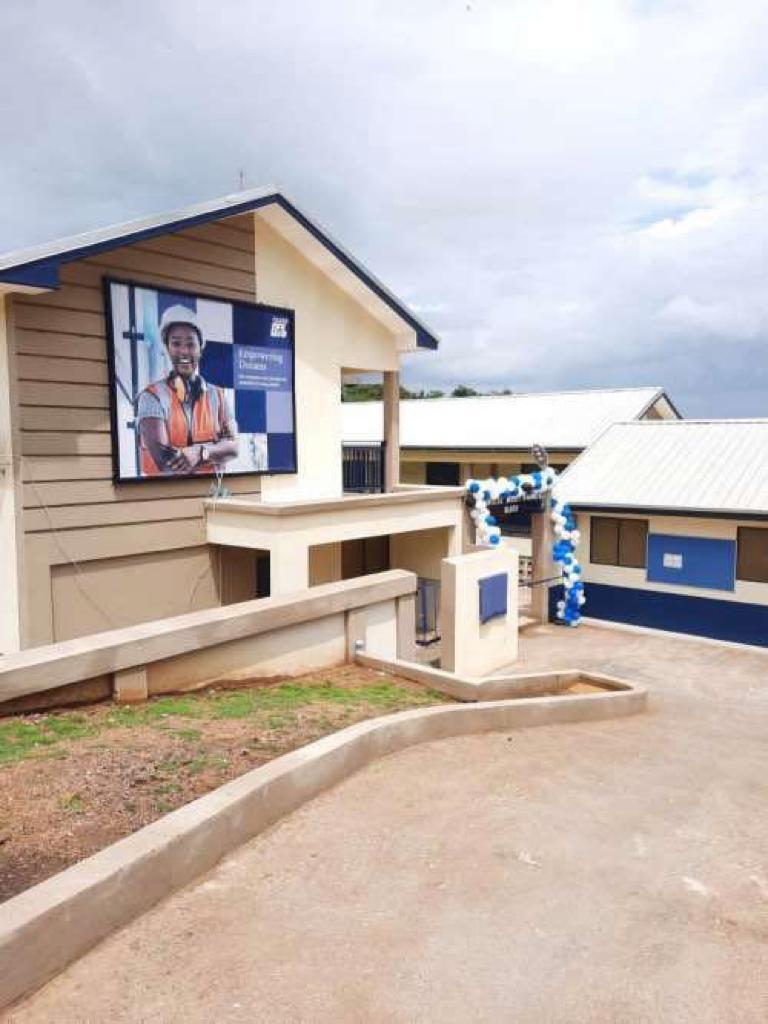
The design ensures the facilities are fully furnished, have improved water supply system, electricity, modern toilet and bathrooms, box rooms, laundry area and dry lines among others, to ensure that occupants have the perfect ambiance to rest and get ready for academic work.
The scope of work also covers the provision of a fully furnished bungalow for the resident housemasters/housemistress to enhance supervision and discipline.
The classroom blocks, apart from being well furnished with the needed furniture plus whiteboards, also spot disability friendly features for use by all.
The estimated students population in the Western Region (including technical schools) since the announcement of Free SHS, enrolment in both SHS and technical education has quadrupled.
Naturally, inadequate infrastructure became a conspicuous challenge that faced the implementation of the policy in the immediate aftermath of the announcement. The situation became even more critical in the wake of the COVID-19 pandemic where protocols required more space or social distancing.
The classroom and dormitory blocks intervention by Tullow then became timely to mitigate the spread of the pandemic and to support the continuation of academic activities.
Especially for some of the day schools, where parents had to rent accommodation for their teenage children and thereby granting them undeserved independence but also exposing them to all forms of social vices, the provision of dormitories has no doubt improved both social and academic disciplines.
Schools such as Nsein SHS, Sankor SHS and Nsutaman SHS which have already benefited from the project under phase one, according to management of the schools, have led to the reduction in overcrowding and improved general health and sanitation while adding over 500 students per school to their boarding house population. This means a marked improvement in the quality of housing for each beneficiary school, with its attendant extra benefits.
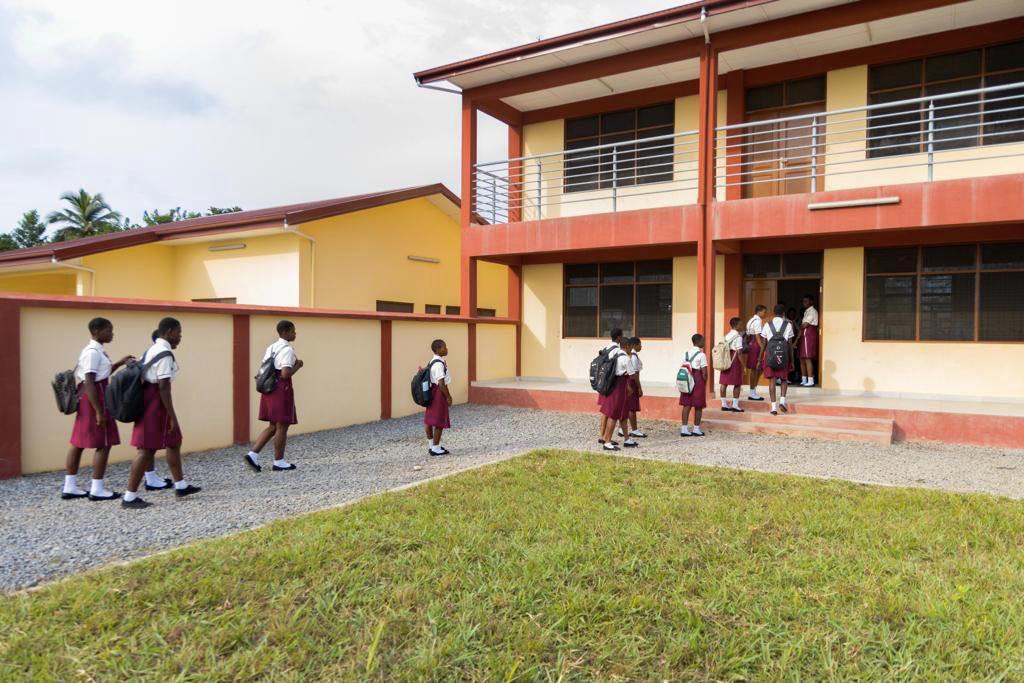
The provision of dormitories has also reduced absenteeism and truancy, apart from affording many more students accommodations and saved them from trekking long distances from homes in nearby villages to school.
The completion of phase two covers additional blocks at Kikam Technical Institute (KIM-TECH), Bonzo-Kaku SHS both in Ellembelle and Anor-Adjaye SHS in the Jomoro Municipality. These are expected to add an estimated 1000-bed boarding and over 600 classroom accommodation for the beneficiary schools.
The third phase which is currently ongoing, will provide dormitory blocks for Axim Girls in the Nzema East Municipality and Bompeh Senior High School in the Sekondi-Takoradi Metropolis, and a much needed 10-unit classroom block for Shama SHS in the Shama District.
Members of the Social Performance Team of Tullow Ghana, Mr Edmund Fiifi Enchill and Elijah Boye-Ampah assured that all the phases of the projects will be completed on schedule. The team assured its readiness to commission three dormitories in Jomoro and Ellembelle soon.
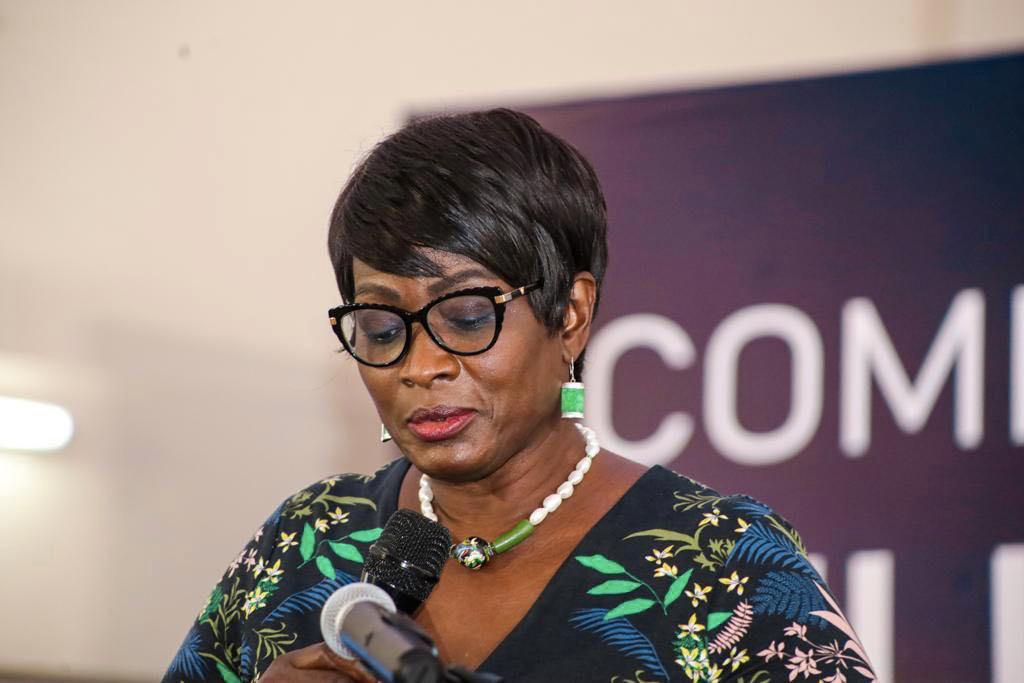
The Western Regional Public Relations Officer of the Ghana Education Service, Ms Betty Elizabeth Etroo said the project came as a great relief for selected schools, explaining “one important thing about the project is that the selected schools are facilities that really needed it.”
The region, she said, has 36 senior high schools and two technical schools with significant improvements in enrolment.
“I must say improvement in enrolment will naturally create the need for perfect and spacious ambiance for academic work – dormitory and classroom blocks.”
“We needed enough dormitories to accommodate more students as well as classrooms blocks to enhance intake. To us, the Tullow Free SHS Infrastructure Project is an apt intervention, since the government cannot do it alone,” Ms. Etroo said.
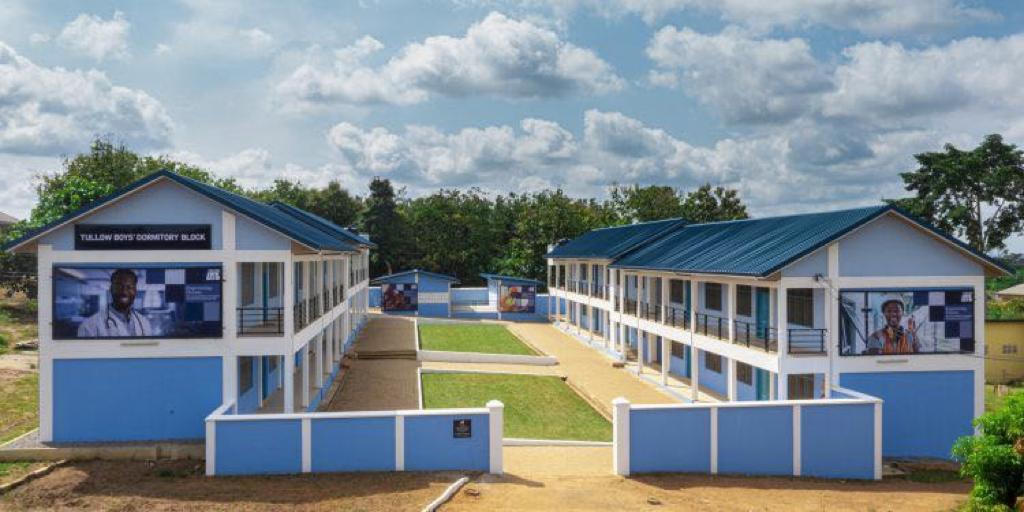
The government receiving support from private sector in the area of educational infrastructure projects, especially the ongoing projects from Tullow, would motivate teachers and students for the improvement of teaching and learning.
At the facilities, some managers of the beneficiary schools described the support from Tullow, as unprecedented owing to the fact the company is providing the blocks and equipping them with all the needed utilities.
The Western Regional Minister, Mr Kwabena Okyere Darko-Mensah in his comments said the construction of the dormitory blocks by Tullow means a lot to the development of education in the Western Region.
Since its inception, he said Tullow Ghana’s invaluable support and commitment in helping the government realize fully the vision it has for the Free SHS policy is highly commendable.
The benefits these dormitories and classroom blocks bring to the beneficiary schools and the entire communities are enormous. “I know of other interventions such as the Tullow Tertiary STEM Scholarship Scheme, the Scholars Aid where stipends are given to hundreds of students in SHS, radio school programme, and sustainable kindergarten among others.
“As we strive to encourage girls’ enrolment, improve science, technology, engineering and mathematics (STEM) in our drive towards national development, the facilities will provide a decent place for students to lay their heads and come out more refreshed daily for academic and extra-curricular activities.” He also added that the intervention will build a brighter future for the youths and thus, a more resilient community.
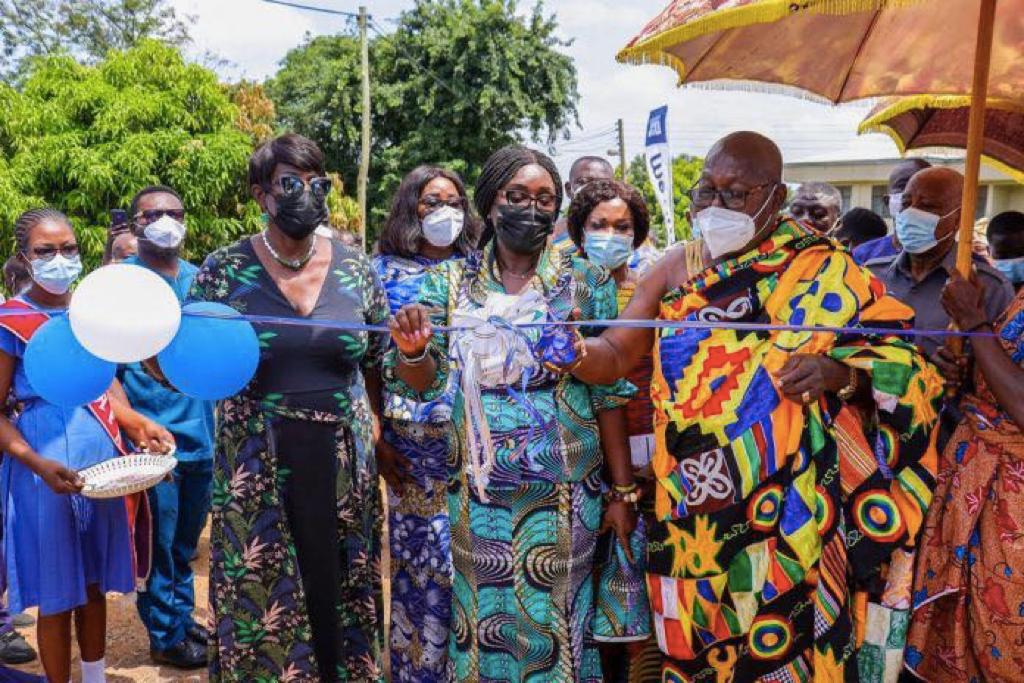
The oil and gas industry, to this end, is not only contributing to the revenue but through their social performance activities are supported in the areas of education, health, road, water and sanitation, loan scheme for fisher folks and regular engagement with stakeholders.
The commitment of funds for the project and its actualization should be a source of encouragement to the rest of other corporate institutions in the country to emulate and join the clarion call for national development.




